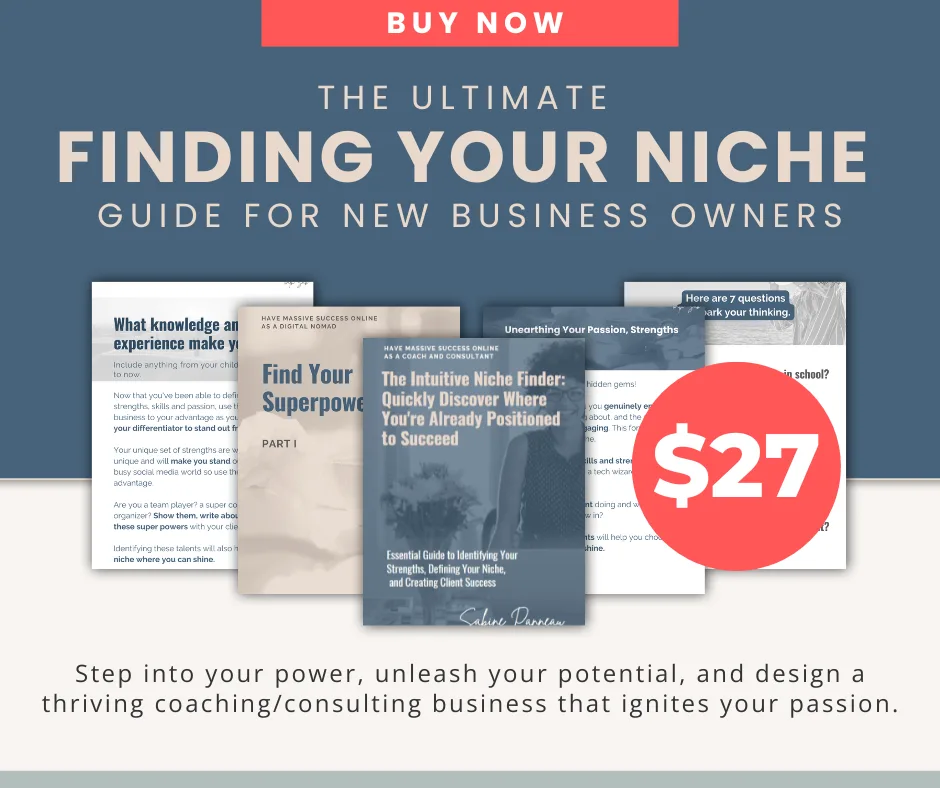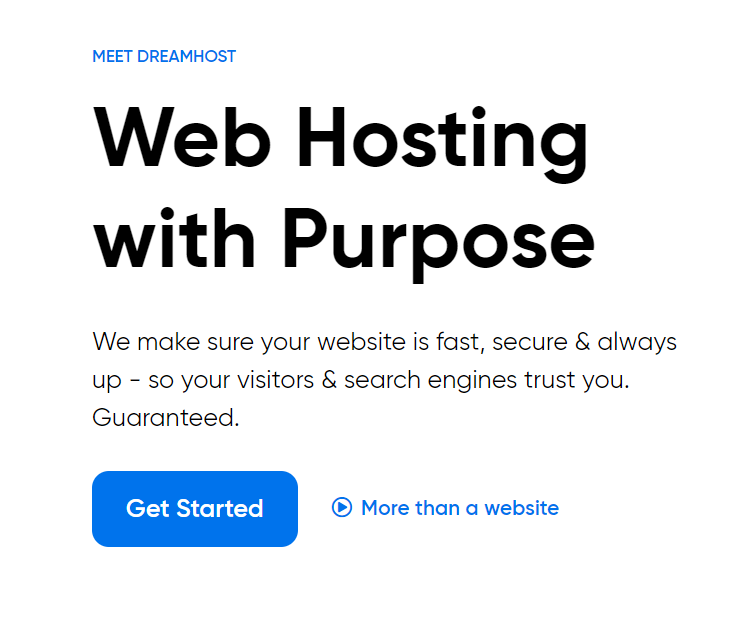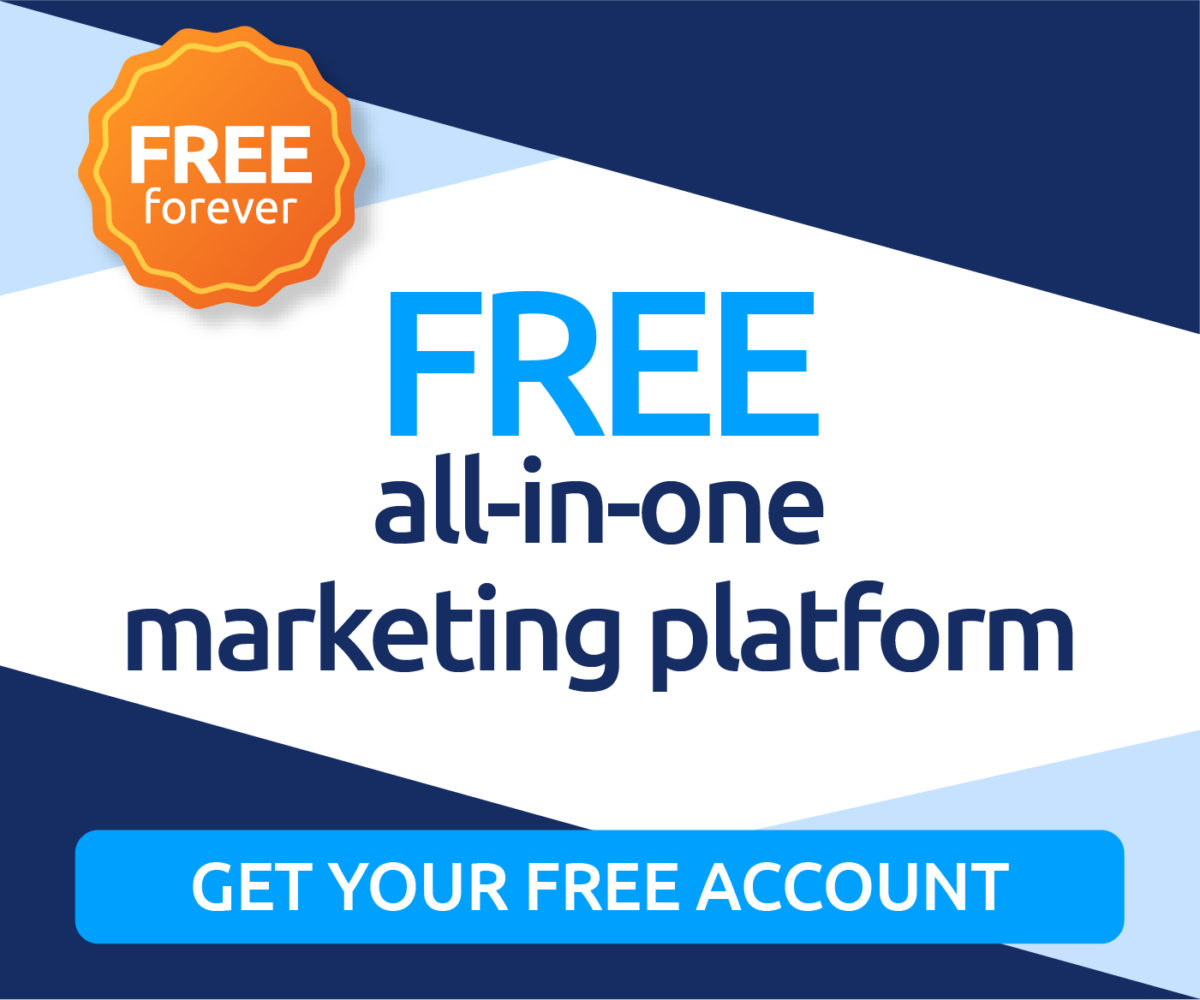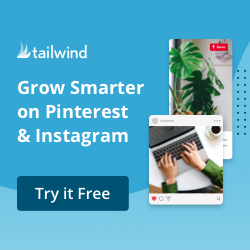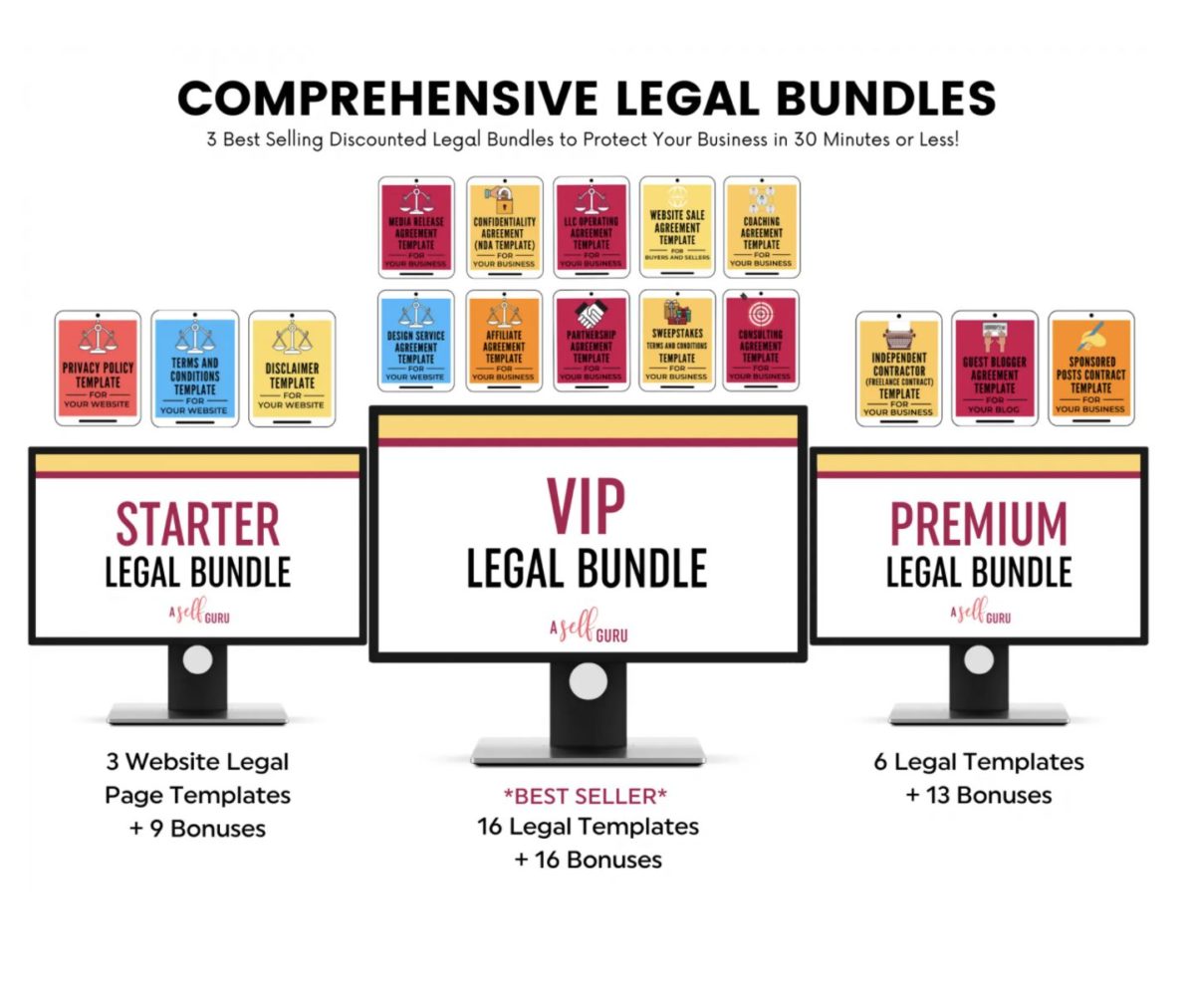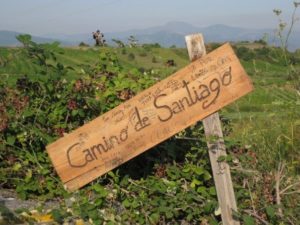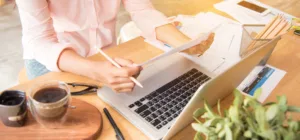Meet Marike, a South African Entrepreneur in the UK

Today’s interview is a story of entrepreneurship, determination, creativity and making meaningful connections. Let me introduce you to Marike, a business owner from South Africa living in the UK.
Marike moved to London over 25 years ago and has built her life and career in the UK. She runs several businesses and most recently co-founded an online co-working and accountability community for women in business. I met Marike in a Facebook group and she agreed to be my very first guest for this new video series. Thank you very much Marike!
I invite you to watch Marike’s interview or listen to the audio version. You’ll also find the transcription of our chat below.
Listen to Marike's Interview
Read the full transcription of our chat
Interview of Marike Fichardt, co-founder of CoWork Crowd, a South African living in the UK by Sabine Panneau, a business strategist and mentor currently living in Argentina.
Sabine: Hi Marike, very nice to meet you. Thank you very much for joining me for this interview series.
Marike: And thank you for having me on here.
Sabine: You’re welcome. So this is the first one in a video format, and hopefully, there’s going to be more. So, let’s go and, talk about your story, what you do and where you are.
Marike: I’m actually South African. I was born and bred down there until I was 25. It was very common for South Africans to have a gap year after University or college and go to the UK because there was a special visa that you could go over and work.
Marike: And, but it’s like casual work and travel – It’s a work and travel visa. So loads of people I knew were doing it as well. The plan was just to stay for six months and 25 years later, I’m still here. So, yes, that, that is how it started. Just something very casual which ended in something big.
At first, I had an office job. I knew deep down that it wasn’t for me. Literally every day I was on that train thinking: ‘The commute is bad, this is not my life. This is not who I am.’ I was so desperate to have my own business, but at that stage, for us to be able to stay in the country, I had to have a sponsorship from a company. As my company was sponsoring me, I couldn’t just leave. And it was kind of before the days of online businesses. So I couldn’t just do something on the side easily.
So it went on like that for a really long time, which I think was a good thing as well, because I had so many ideas of businesses that I wanted to start.
I think there are quite a few I would have started that it wouldn’t have worked out. So I worked for Apple in the end for a really long time, which I loved. And then at one point, I had a 12-year-old daughter, my commute to Apple was long, I travelled a lot as well so I decided I couldn’t do this anymore and left. This was about six years ago now.
And it was literally like a second birth because I kind of knew I could then just start my own business.
Sabine: Did you ever think of going back to South Africa at that time when there were some changes in your life or maybe go somewhere else?
Marike: Yes. Yeah, we, yeah, it was almost like, I dunno if there’s someone listening who’s been through the same but we thought about it all the time.
I got married by then and in the meanwhile, my husband who’s also South African from the same hometown. We know each other from, from home. So we had the same experience and the same nostalgia and we would be like, should we go back? Should we stay? But at that stage also politically, we weren’t sure about South Africa, how it’s going to go. And there was just a lot of opportunity work-wise in the UK or for him as well. And we really enjoyed these travel opportunities, you know, from the UK, it’s so easy to travel. So we loved that lifestyle of just hopping on a plane for a weekend and travelling.
But all the time in the back of our minds, our home is in a way, South Africa. I don’t know about you now where you are. It just becomes more and more your country. So in the end, because it’s also an easy flight for us back to South Africa, it’s just an overnight flight. We’re still here 25 years later.
Sabine: That’s great. And this leads to my next question. You’ve already mentioned one but can you tell me some of the things that you like about living in the UK? You are in London, right?
Marike: I’m just an hour outside of London in Surrey. We’re in Farnham, which is near Guildford in Surrey. If you look at London in the UK, I’m just kind of Southeast of London, very easy to get into London, but I lived most of it in London itself. Actually, I saw you were that you lived there as well. I didn’t you?
Sabine: Yes, I lived in South London for many years.
Marike: Yeah. Yeah. So it’s an addictive life almost because there’s just so much going on. It’s hard to leave.
Sabine: Similarly, I was planning on staying for 6 months and I stayed for over 10 years.
So there was definitely something that kept you there. So what would you say are 3 things that you really enjoy about your life in the UK compared to other experiences that you had either home or abroad? what would you say made you stay?
Marike: So I think personal safety is one. I know this is a really strange one, but South Africa was becoming quite unsafe. Over time we heard many stories from home. So for me, walking out alone at night in London, or even where I’m now going in a forest near my house on my own, it’s just, you can’t do that there so I think personal safety was a big one for me.
I love living also in a country where there are lots of opportunities. I love that. Although I’m an immigrant here and there’s still a lot of opportunity for me.
And, I think the last one is a strange one because I always try to think about what do we have here that we haven’t got in South Africa. The Pub culture here in the UK is very unique here. You know, in the middle of the day or evening, you can just go to your local pub or a pub and there’ll be other people there. So even if you’re on your own, you never have to be on your own. You can just go and quickly say, you know, pop in for a drink. You can have a coffee at most pubs, and there’s just that warmth and that people that’s there. And every time I’m in another country, I haven’t been everywhere, but it’s just something that I haven’t found anywhere else. It’s definitely not in South Africa. It’s not, when I go to the US it’s not there. It’s just that almost that familiarity where people know you, if you go to the same pub all the time, and it’s not on their your best friends, but it’s just that someone is going to be there to say hello, and it’s almost always open.
Sabine: Definitely. So you mentioned a little bit earlier, that you were at a crossroads in your life and you had been looking online at what you could do. What made you decide on what to do online? There are so many options, there are so many things you could do. What may have helped you? Did you get some help, external help? What did you do in the process to start your own business in the way you did it.
Marike: Yes, I did. I was working for Lehman Brothers in Canary Wharf, which is the area with the high towers in east London. And I remember going down the escalators into the undercover mall. So I would go in there and there was a Molton Brown shop. As you go down the escalator, you know, Molton Brown, the Luxury toiletries brand. At Christmas or Mother’s day, there was always a queue outside. And I thought to myself how do all these people queue up to buy, I don’t know, a £15 bottle of handwash. I became almost obsessed with it. I wanted to have a handwash brand that people would line up for.
I did it for years, this, you know, this escalator journey down. And then I was on the tube and I read an interview of a company that helps people develop personal brands and PR product brands. So I had a chat with them and very slowly, I mean, you know, I sat for so many years on the tube. Until I realised what I want to do is start a children’s toiletries company. It was when my daughter was very little and it was such a long road actually. So I knew that’s what I wanted to do. At that stage, Johnson and Johnson was kind of the only big brand. I could see a gap in the market.
And then I stupidly thought, you know, you sometimes just do things because you don’t know better. I sometimes think that’s so great about being an entrepreneur. You have this dream and you go for it, but there’s this genius and the boldness because you just go.
At first, I thought I’m going to sell it as almost like a Molton Brown into baby boutiques and pharmacies. So I tried that, and then I realized that once I looked at the actual statistics, the statistical reports coming out, that 98% of children’s toiletries are bought in supermarkets in the UK.
I can’t be that 2% that is sold somewhere else. So I was in baby boutiques. I was in Harrolds even with my products but then the margin is so small that you have to sell thousands every month to make money. This is all while I’m still working.
Actually, I was doing some of this in the background. Just calling supermarkets, Tesco. Sainsbury’s just keep calling them and trying to get hold of the buyer. And then I had a few appointments with the shops, with their buyers, but it’s such a tricky one because you would meet the buyer like “Oh, this looks interesting”. And two months would go past and you wouldn’t hear from them. You would call again and they’d tell you – “oh no, no, she’s no longer on kids’ toiletries. She now works on shaving cream or whatever she’s gone. You’ve got a new buyer now for this”. And then, there was an opportunity with Tesco which came up, which was massive. But at that stage, there was a scandal about Tesco. And they had to do an audit on all their suppliers. So that kind of thing fell through.
I remember reading another interview in a newspaper about someone who’s doing these amenities when you stay in hotels. And I tried to make contact with her and she’s like, “yeah, but no”, but also this process is like six months now. And then I thought “who else does this?”. And I just literally used Google and I found another company. I spoke to the salesperson and she said, okay, let’s look at this.
She introduced me to people at her company and we started creating these products. So my products were like big sizes, but then we started creating minis. They distribute to hotels, they do distribution to hotels of towels, sheets and everything, but also all these amenities that you get in hotels.
I licensed my products to them. So they pay me a royalty every month. And in the beginning, I would earn £10 a month, £15 a month. But it’s built up over the years to a business that is completely hands-off. I’ve got 2 other businesses.
This is how I got out of the corporate world.
I realised I had a business then. More and more of the products sold, I actually realized that the first company that said no to me was a small company and the company that said yes to me was the biggest hotel distributor in the world. So it’s this wonderful thing of a ‘NO’ that forced me to go to someone else and that other person was then much bigger, so much bigger. So my products went out all over the world and they’re in China, in the Hiltons and the Holiday Inns and in the US, everywhere. So it’s a great thing.
Sabine: And do you still have that business?
Marike: I have! I still have that business. What happened is that it’s, it’s very hands-off for me. At the moment I’m doing some new product development, but it’s, it’s not something that I’m actively doing every day. So I was looking for something else to do. I love the online business space. I was desperate to do something else as well.
I enrolled in B-School by Marie Forleo. I was in an accountability group with five other people and every week or two we would get online and have a chat on zoom and say, how’s it going? One of us said at one stage said let’s do online coworking. We just all sit on camera. That was about three years ago. Every two months or so we would all sit together and do coworking. And then every time one, one of the other ladies and I were like “why is this not a business?”
It’s amazing, it’s so powerful. It’s so magical. If we are so productive when we do this, why is this not a business? And then, at the beginning of COVID, we were like, let’s see, how can we make this work? And yes, we launched it so it’s now COWORK CROWD. We have, I think, 60 members. And it’s something that came out of nothing. It was just an idea.
And we saw that a San Francisco startup is doing something similar. And when we, the moment we realize there’s someone that’s building this into a big company, like, well, then we can definitely do this too. So we added a different model in them, but we just like, okay, this can be a business.
And we just went full lane.
Sabine: Yeah. I love that. The way that it came from an experience that you had within another program. And you decided to do that outside of it and use the experience that you had from there to build exactly something else, a new business. Yes.
Sabine: Is this 100% online?
Marike: Yes, a hundred per cent!
Sabine: So you’re running the business with another person.
Marike: Yes, I have a co-founder. And it’s a hundred per cent online. It’s basically a bunch of people who get together on Zoom, eight times a week. And then we would put people in little breakout rooms, but each of five people, and then people would go in the room, they would say “Today I’m going to work on my pitch for my client, or I’m going to create 5 Canva images or whatever. It’s a two-hour session. There’s all this neuroscience, which shows why it works well. I mean, people put themselves on mute, but they’ll stay on camera. It’s called body doubling. At the end of the two-hour session, people will check “how did it go?”. And we tell people: switch off your phone, put any disruptions away, you know, turn your wifi off or whatever you need to work. It’s giving people that fully focused time. It’s not just any time. Normally a lot of people create content in this time because you can be so, so focused on doing that.
Sabine: This is great. Do the people who are part of the coworking come from specific countries or are they kind of all around the world, at the moment?
Marike: I know that’s the beauty. So they’re from around the world. We have one person in India. That’s the furthest east we have at the moment. And then we have Europe, we have the UK, the US and Canada. Obviously, Australia and Asia is the next one that we’ll add, but time zone wise, it’s basically Europe, Europe until the west coast of America is our online time. I love it that we can with a press of a button, chat to people from all over the world, doing all sorts of different businesses.
Sabine: Definitely. Was it hard to go from having a team and working with people to being online, where you’re not having day-to-day interactions?
Marike: Yeah, it’s an interesting one and we are all so different. I think that’s the one thing that I realized some of us really need that interaction with other people. A lot of people say they stay with us because this community, you know, it’s maybe not face-to-face here in person, but the fact that every morning, instead of them just being on their own at home, working from home, they switch on the computer nine o’clock in the morning, like, “hello, good morning. How was your…., you know, how’s it going?” And it’s just, it’s a very quick chat, but there are other people. Whether you just every day, you know, in the online business space often we’re just a hundred per cent working on our own. You could actually be watching Netflix and eating ice cream by 11 o’clock. No one will know.
This isn’t just accountability, it’s camaraderie. And also if you hear people saying “oh, I’m going to have to go my taxes today or I’m going to do my accounting. It’s just, it’s that 95% of business building, that’s kind of the unsexy things. That’s not very fun to do, but just knowing that other people are doing the same.
The fact that it’s for us, it’s almost a comparison between, on our own from home or having other people on screen. To answer your original question, what I do, because I do feel I need some real-life interactions as well, I belong to a networking group in my town. I see them once a month but other than that, I mostly just see friends and go for a coffee with someone, but they’re not necessarily business owners. I think it’s one of the things that I really missed when I moved out of London, there are not that many business owners around you necessarily. And so the networking that I go to, there’s no other online business owners.
It’s normally people that have traditional businesses or something like a graphic designer and people understands what they do. But if, if I explain what we do, they say “Oh Ok, it sounds interesting…”.
Sabine: I see now how my question was actually influenced by my point of view of needing to go out and meet people. That’s the same for me, I feel like because I work online, I need to see people, and I’ll go to conferences that are vaguely related to my topics, but just because I go and see people and have that interaction. But as you’ve mentioned, having a friendly face in the morning, even if it’s online, but having someone who you know is so important. You may not get in a coworking space, because there may be teams already working together and then people coming in and you don’t know them necessarily. Whereas in your online coworking they’re going to be there.
Marike: Yeah. Yeah, exactly. Because I’ve got a local co-working place and it’s right, you just walk in say “Hi” and then you go and sit down, you don’t interact with anyone, maybe you talk to the receptionist and you then sit down. But yeah, I’m actively now trying also to go to events. I’m not really extroverted, but I do feel that I need it now after COVID for so long that we couldn’t do it and we couldn’t speak to people like us almost at these events. In the UK obviously, it’s easier for me than you, but there are people that are online business owners that we can talk to face-to-face.
Sabine: I love that you created the support group, the support that people need when they work online. Because it is hard.
Marike: it’s lonely. Yeah.
Sabine: And as you mentioned as well, everyone has a different experience doing the same thing. They could be, you know, two different graphic designers, but they all have their personality, their lifestyle will change. We often miss being able to have normal conversations with people about tour experiences.
Marike: Exactly. Yes. And sometimes someone will say, oh, today I’m going to, schedule my social media and then someone else will ask, what tool do you use? So there is a little bit of chatting like that. We do the same thing, but there are so many options and sometimes you can go into a Facebook group and ask, but it’s not the same as chatting to someone who can give you kind of the straight answers.
Sabine: Definitely. Well, I love your story and I love how you, as I mentioned earlier, you’ve experienced something in one environment and created a business from that. I love everything to do with creativity and to be able to transform things and adapt to your situation.
Marike: Yeah. I think you’re so right. I think that’s what we do as business owners and we have to. That’s what creativity is about in the business environment, it’s just going to apply what we’ve seen someplace and go and apply it into another space. Uh, yeah, but I also love that you are bringing together people who are outside their own country and it’s not until I’ve kind of read about your story that I really thought about myself as someone who is doing it in another country.
Sometimes think if I was back in South Africa, I would be more surrounded by business owners. There is something a bit more lonely about doing it as in a foreigner, almost in a country. And you need to actively go and seek groups. There’s no one who was at school with you or college or university who is doing this. If you don’t go out and find people, you will just be on your own.
Sabine: Definitely. Yeah. Loneliness is one of the reasons why so many people as well go online. I didn’t go online when I was living in the UK, I was working, I was in the corporate world, in fundraising actually. I never thought of doing anything online. I’d never really considered myself as someone living outside of my country, which of course I was since I’m French but, it was different. I went to university there, so it was different as well. I had my group of friends from university as well.
When we go into a new country, we need to be active in creating a support cycle, it doesn’t need to be a huge circle, but a circle of people that you can count on or can support you or can help you. And I know I do that as well here now because I’ve been 25 years abroad, living outside of my country and I organize the French meetups here. I’ve done that for many years and I created that space because I know how it feels to get to a new country.
Marike: Yeah, it’s so true. I often, I think sometimes I am trying so hard to fit in but then, when I meet South Africans, there’s so many of them around me and I’m like, “oh, that’s so lovely to go for a coffee. So it’s almost like you live in these two worlds. fitting into this world, but then also still kind of going actively and finding the people that you have something in common with from your nationality or where you grew up.
Sabine: Yeah, for me it’s a language. And it’s me because I was here in Argentina for many years and there were not that many French speakers around me. I got to the point where I felt “I’m still French. I don’t speak French every day”
Marike: Oh Yes
Sabine: Even just speaking my own language. So it wasn’t like an active effort, something I wanted to meet other people just to get one evening because my partner doesn’t speak French, so one evening a month and I’ll just speak French.
Marike: That’s fantastic!
Sabine: Even during the pandemics, I didn’t feel so isolated. Naturally, we already are isolated in a way from being far away from our family but I’ve always had this online connection with people. And I feel it really helped me.
Marike: Absolutely.
Sabine: It helps us to keep living our lives. Although we’re not in the same space, we can still grow and do those things.
So where can we find you online?
Marike: So our website is coworkcrowd.com and we’re on Instagram, just @coworkcrowd. It’d be lovely to connect with people.
Sabine: Yes. I’ll put the details in the description of this video. And then in the article that will be published online on my website. The interview will be published on sabinefep.com/interviews . There you’ll find your interview and all the other interviews that I’ve done so far.
Marike: Fantastic.
Sabine: Thank you very much, Marike.
Marike: I really enjoyed that. Thank you.
Sabine: You’re very welcome. And, I’m sure a lot of people are going to connect with you and discover your coworking space, online space.
Marike: Fantastic. Thank you.
Sabine: Thank you very much.
Marike: Bye.
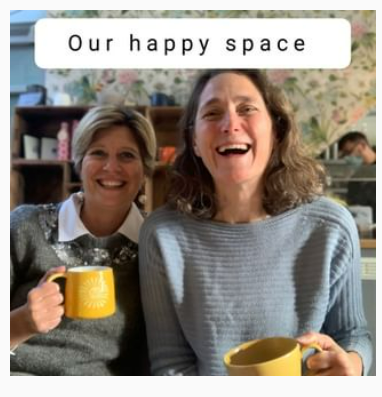
You can find out more about Marike’s online community for women in business – https://coworkcrowd.com/
and on Instagram – @coworkcrowd
Thank you, Marike for sharing your unique experience. I wish you all the best with your businesses and I am sure that a lot of readers will be inspired by your story and hopefully will turn their dreams of living abroad into reality in the years to come thanks to you.
——
Want to read more online business success stories? Make sure to check out the other interviews here.
Want to grow your mailing list faster (even as a newbie).
Add these 3 critical components to your freebie to turn your followers into serious subscribers.
↠ so that you gradually grow a list of dream clients willing to hear from you and ready to buy
↠ so that you don’t waste your efforts and money talking to an uninterested audience or freebie seekers
Download now my free PDF guide and learn:
– The most important exercise to attract hundreds of new subscribers every month.
– How to connect your lead magnet to the rest of your offering
– The one thing that will make it 10x more effective once people get access to your freebie.
Simply enter your details below:



